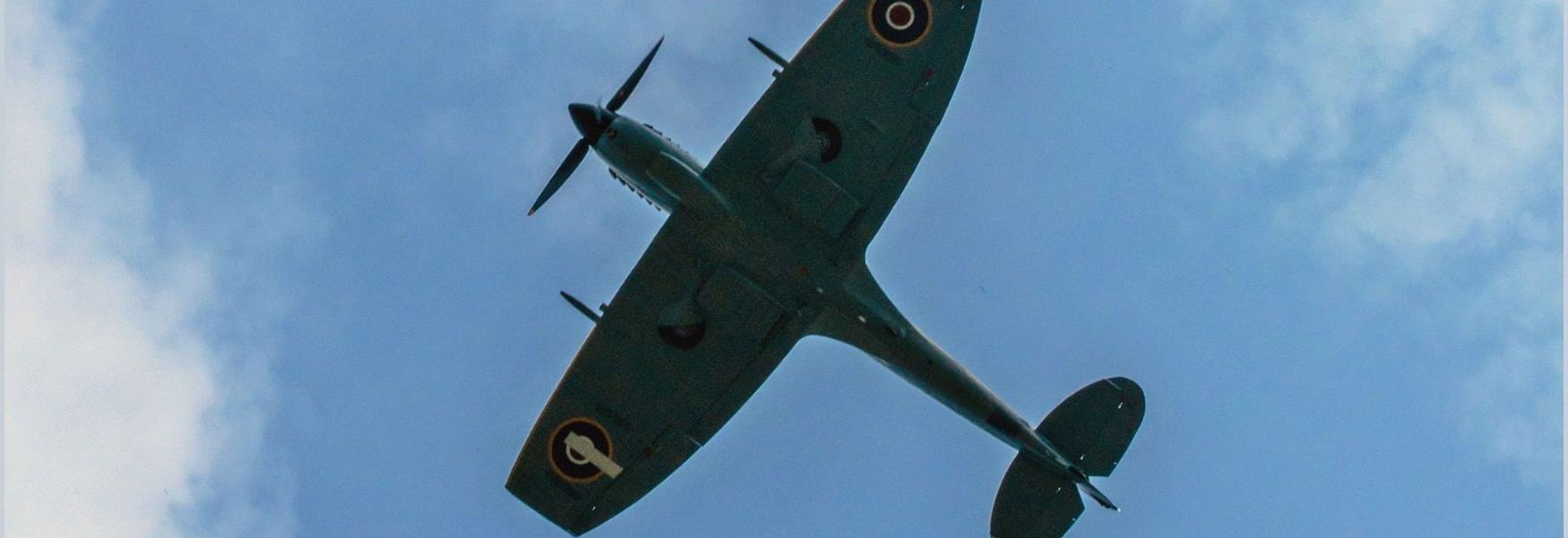To build your own Itinerary, click  to add an item to your Itinerary basket.
to add an item to your Itinerary basket.
Already saved an Itinerary?



You are here: UK History > Britain at War > WWI > Notable people involved in WW1
Whether you are visiting heritage places associated with the Great War and want more background on the people who lived and worked there, or you want understand more about the people you read about in your history books, you can find out more about the notable figures of WW1 here.
To put it into context, there are a couple of big names that you will know from the entertainment industry who were involved in the First World War, mostly as fighters or in some instances, as members of Intelligence Agencies. For example, American authors F Scott Fitzgerald and Ernest Hemingway were both soldiers who fought in WW1.
Hemingway was a journalist who was turned away from serving in the military, so joined the Red Cross instead. Towards the end of the war, the was injured in motar fire in Italy, which inspired him to write some of his great novels. F Scott Fitzgerald enlisted in the army and was commissioned as a second lieutenant after dropping out of Princeton University. He never saw combat however as the armistice was signed before he was deployed. British novelist Robert Graves was also a soldier and was badly wounded during the Battle of the Somme, which inspired him to write one of his best loved poems.
Actor Humphrey Bogart, who you might know from the film Casablanca, joined the US Navy in 1918 and was part of the team that transported troops between America and Europe.
Another famous name was Mata Hari. Dutch-born Margaretha Zelle, was an exotic dancer in Paris in the early 1900s where she became the mistress of a diplomat and travelled through Europe performing. She was particularly well known for her Temple Dance and during her travels, accepted money from a German officer to spy on France but didn’t go through it, later in the war, she fell in love with an injured Russian captain and agreed to spy on Germany for France. Sadly, for her, the French suspected that she was a double agent and she was executed in Paris in 1917 by firing squad.
Other well-known participants in the war included Erwin Schrödinger of Schrödinger’s Cat fame, who was drafted into the Austro-Hungarian military. Edwin Hubble, the American astronomer who lent his name to the Hubble Space Telescope, joined the US Army in 1917, but like Fitzgerald, never saw active combat.
When war broke out, the majority of countries in Europe were ruled by descendants of Queen Victoria, including Britain. Britain’s King George was the cousin of Tsar Nicholas in Russia and Kaiser Wilhelm II in Germany. During that time, Britain, France and other nations also saw a change in political leadership.
Britain had two Prime Ministers during the First World War. At the start of the war. Herbert Asquith, the leader of the Liberal Party was Prime Minister. He served until 1916, when he resigned following a series of military defeats and was replaced by David Lloyd George, who had been a member of the War Cabinet. Lloyd George remained Prime Minister until 1922, he was the last Liberal Prime Minister of Britain.
Lord Kitchener
Appointed Secretary of State for War in 1914, he played a crucial role in raising a volunteer army and expanded arms production in Britain.
Winston Churchill
Before he was credited with winning WWII, Churchill resigned as First Lord of the Admirality in 1915 for his role in the unsuccessful Gallipoli campaign. He returned to office for several months on the Western Front and then in 1917, he became Minister of Munitions.
Georges Clemenceau
The French Prime Minister from 1917-1920, he was a key figure in holding French resolve and took a harsh position against Germany after the end of the war.
Woodrow Wilson
The American president. Initially he wanted to keep America out of the war and even won an election campaign on that promise. However, after the sinking of the Lusitania, which had several American passengers on board, he joined the war against Germany. He strove to create a lasting peace in Europe by developing the League of Nations and wanting a fair peace settlement.
Paul von Hindenburg
Von Hindenburg led the German army to major successes during the War and was eventually promoted to the Chief of the General Staff.
Vladamir Lenin
The leader of the Bolsheviks, he led the revolution in Russia in 1917. Initially, Lenin was smuggled into the country from exile by the German government in the hope that he would cause instablility in the east. Lenin and his supporters overthrew the government and took Russia out of the war.
Douglas Haig.
Although a controversial figure, as British General and Commander in Chief, Haig was known for his involvement in planning the unsuccessful Somme offensive but did also play a role in the successful offensive in 1918.
T E Lawrence
AKA Lawrence of Arabia, T E Lawrence was a British officer who served in the Middle East and played a key role in the rebellion against the Ottoman Empire.
Wilfred Owen
Celebrated as a poet who vividly described the horrors of trench warfare. He was killed in action a week before the armistice.
Siegfried Sassoon
Another war poet, Sassoon was very critical of the war and wrote a letter to the Times saying as much. He would have been Court Marshalled but avoided punishment by being treated for shell shock.
Edith Cavell
As a nurse, Edith Cavell was known for treating any injured soldier, no matter what their alliance was and was credited for helping Allied servicemen escape German occupied Belgium. She was captured and executed for espionage. The night before her execution, she was heard to say: “Patriotism is not enough. I must have no hatred or bitterness towards anyone.”
Bertrand Russell
As a pacifist, Russell campaigned against conscription and spent time in prison for speaking out about the war.
The Suffragettes
In the lead up to the war, the Suffragettes were involved in a campaign of domestic terrorism but put their campaign on hold as part of their war effort. Many women went to work in factories and took on roles that had been left by the men who had been sent to the front.
© Visit Heritage 2025. All Rights Reserved

.png)


